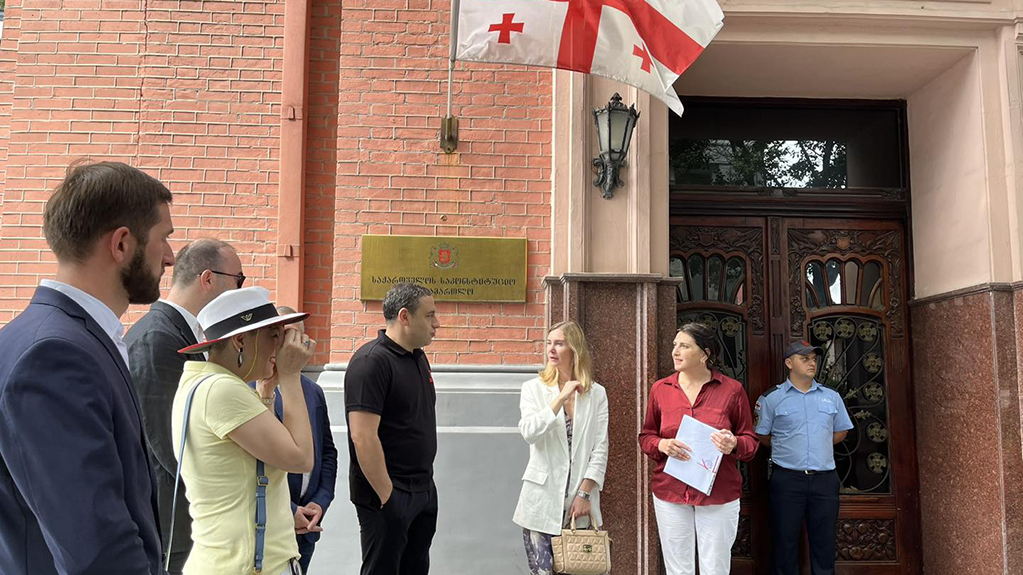Members of the parliamentary opposition have filed a lawsuit with the Constitutional Court challenging the Russian Law on so-called Foreign Agents. The lawsuit was submitted today, July 29.
News
"The Russian Law violates the Constitution of Georgia and undermines democracy. We believe it is our constitutional duty to address this issue in the Constitutional Court," said independent deputy Tamar Kordzaia. He expressed confidence that the Constitutional Court would consider the obligation to uphold Article 78 of the Constitution and implement a temporary measure to suspend the Russian law:
"We are challenging the entire law with regard to Article 78 of the Constitution, but our initial request is for the suspension of this law. It must be suspended before the elections, or else the country could suffer irreparable harm. The full implementation of the law and the sanctions it entails will begin on September 3. Therefore, we believe a session must be held before that date to address the suspension."
The constitutional lawsuit is signed by 38 deputies. As Tina Bokuchava, chairperson of the United National Movement, says, she does not anticipate that the court will be immune to "political orders":
"In addition to violating several international norms and standards, the Russian Law also contradicts the Constitution of Georgia, particularly Article 78, which requires all government branches and institutions to work towards the country’s integration into Euro-Atlantic structures. By adopting this Russian Law, Ivanishvili’s party is undermining our path to joining the European Union. We do not expect the Constitutional Court to resist political pressure, as it has failed to do so in the past, including in the impeachment case against President Zourabichvili. However, we believe it is essential for the opposition to unite and use all legal and constitutional means to oppose this Russian Law. If the Constitutional Court does not seize this opportunity to uphold the Constitution and support the Georgian people, the Georgian people will use their own power on October 26 to annul the Russian Law.
This is a critical opportunity for the Constitutional Court to act before September 3 and prevent the government from enforcing this draconian Russian Law that jeopardizes our country's European future," Bokuchava said.
President Salome Zourabichvili has also appealed to the Constitutional Court, arguing that the On Transparency of Foreign Influence law and its provisions violate six articles of the constitution, including Article 78, which concerns the country's integration into European and Euro-Atlantic structures. The president’s lawsuit notes that foreign funding does not inherently imply foreign influence and is insufficient to justify restrictive measures against civil organizations and the media, particularly when such funding comes from international organizations of which Georgia is a member or seeks to join.
Non-governmental and media organizations have also challenged the Russian Law in the Constitutional Court, demanding its suspension. They are simultaneously preparing a complaint to be submitted to the European Court of Human Rights.















